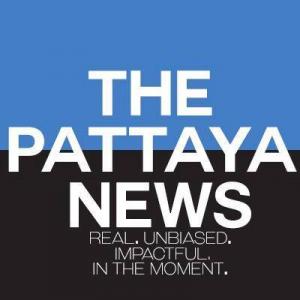MANILA, PHILIPPINES—Partnerships in Environmental Management for the Seas of East Asia (PEMSEA) will host a live webinar via Zoom on “Biofouling: Regional Efforts and Innovative Solutions” on November 11, 2021, from 2:00 p.m. to 5:00 p.m. (Cambodia time, GMT+7) as part of a series of collabs or knowledge-sharing sessions in the lead up to the 2021 East Asian Seas (EAS) Congress happening in December.
The webinar, organized in collaboration with the Korea Institute of Ocean Science and Technology (KIOST) and the International Maritime Organization (IMO), will feature presentations from biofouling experts and industry leaders within the maritime sector. It also aims to share existing information on innovative solutions and areas for cooperation across the maritime industry to combat biofouling; as well as shed light on the biological and chemical characteristics of biofouling and the economic impacts of invasive aquatic species (IAS) transferred by biofouling.
Referring to the gradual accumulation of water-borne species on submerged structures, biofouling may appear as a harmless natural process. However, for ships and other structures, these organisms can eventually contribute to corrosion and increased weight of these structures, or decreased speed of moving parts—resulting in increased operational costs and carbon emissions within the maritime sector. Known as invasive aquatic species or IAS, these organisms can threaten the health of the world’s ocean as the organisms can attach themselves to shipping hulls and other mobile infrastructure, allowing them to enter new environments around the world and threaten the ecosystem dynamics of the local marine biodiversity.
Invasive aquatic species may also compete with native organisms for limited resources and reduce biodiversity by causing the extinction of native plants and animals. Ballast water from ships, biofouling in submerged mobile marine structures, and aquaculture are the main culprits responsible for the unintentional transfer of these non-indigenous species. Globally, the economic impacts of these invasive aquatic species have been estimated at several hundred million dollars per year.
In response, the GloFouling Partnerships project was initiated by the IMO in collaboration with the United Nations Development Programme (UNDP) and Global Environment Facility (GEF) to protect marine ecosystems from the negative effects of invasive aquatic species.
Launched in 2019, this global project focuses on the implementation of the IMO’s guidelines on control and management of ship biofouling by delivering a range of governance reforms at the national level through technology transfer, capacity building activities, and demonstration sites.
Six regional coordinating organizations (RCOs) have been supporting the efforts of GloFouling Partnerships with the added role of harmonizing the various management responses to biofouling at the regional level for their respective jurisdiction. As the RCO for East Asia, PEMSEA is an intergovernmental organization built with the aim of enhancing cross-country dialogue, policies, research, training, and other efforts to ensure sustainable development of the EAS region. PEMSEA works with eleven (11) country partners, namely, Cambodia, China, DPR Korea, Indonesia, Japan, Lao PDR, Philippines, RO Korea, Singapore, Timor-Leste, and Viet Nam.
Worldwide, the East Asia region is one of the hotspots of IAS and ballast water from ships. It serves as a conduit for 90 percent of maritime trade and houses the top five busiest seaports. Therefore, it is important to adopt a regional strategy on biofouling which will consider national biofouling management standards of concerned countries, and that biofouling management practices are implemented beyond the region.
To register for the event, click on https://tinyurl.com/KIOSTcollab-ZoomReg by November 9, 2021, 11:59 PM (GMT+7). Registered individuals will automatically receive the user-specific Zoom links and online calendar invites for the event.
This webinar is part of a series of virtual training and technical workshops for the upcoming 2021 EAS Congress. With the theme “Charting a New Decade of H.O.P.E. (Healthy Oceans, People, and Economies),” this year’s Congress will culminate on December 1-2, 2021.
For more information on the 2021 EAS Congress, visit https://eascongress2021.pemsea.org/.
ADDITIONAL INFORMATION:
This event is part of a series of technical assistance and capacity-building activities led by PEMSEA as one of the regional coordinating organizations for the GEF/UNDP/IMO GloFouling Partnerships Project, a five-year initiative beginning in 2019 that aims to shape the necessary legal, policy, and institutional arrangements to address issues related to biofouling and support the implementation of the “Guidelines for the control and management of ships’ biofouling to minimize the transfer of invasive aquatic species” issued by the International Maritime Organization (IMO) for execution at the regional and national levels.




